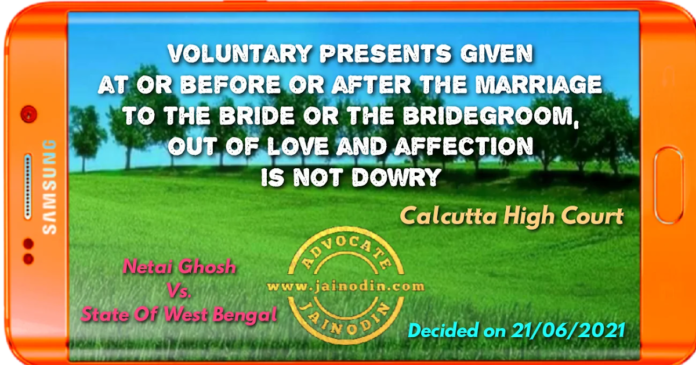[ad_1]
It is needless to say that in a case of cruelty and dowry death, direct evidence is hardly available. It is the circumstantial evidence and the conduct of the accused persons which are to be taken into consideration for adjudicating upon the truthfulness or otherwise of the prosecution case. In the instant case it is alleged in the FIR that the mother-in-law of the deceased (appellant No.2) used to abuse the deceased with filthy language as her father failed to give a gold chain at the time of marriage. The defacto complainant also alleged that the husband of the deceased (appellant No.1) used to assault her physically. It is not disputed that the witnesses on behalf of the prosecution did not see the occurrence. Allegation of cruelty and unnatural death of the deceased was made by the defacto complainant only after the death of the deceased. It is important to note that the defacto complainant did not state in the FIR as well as in course of his evidence that the accused persons demanded dowry as a consequence of marriage. The definition of the expression “dowry” contained in Section 2 of the Dowry Prohibition Act, 1961 cannot be applied merely to the “demand” of money, property or valuable security made at or after the performance of marriage.[Para No.23]
The legislature has in its wisdom while providing for the definition of “dowry” emphasized that
presents to the bride or the bride groom by friends and relatives. Thus, voluntary presents given at or before or after the marriage to the bride or the bridegroom, as the case may be, of a traditional nature, which are given not as a consideration for marriage but out of love, affection on regard, would not fall within the mischief of the expression ‘dowry’ made punishable under the Act.
Calcutta High Court
Netai Ghosh
Vs.
State Of West Bengal
Decided on 21/06/2021
[ad_2]
Source link


